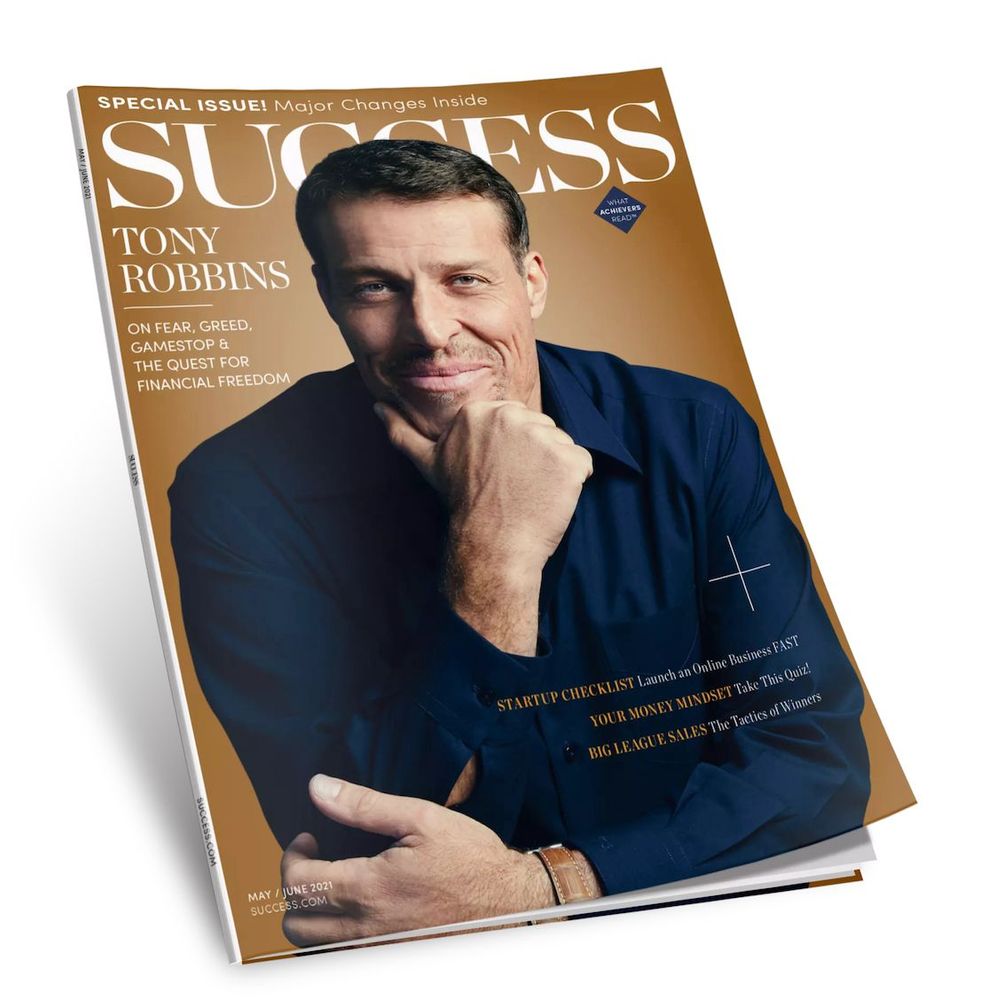Do not @ me.
Don’t tweet me, don’t message me on LinkedIn. Stay out of my DMs. Don’t text, and especially, especially, no matter what, never call me.
That said, I absolutely want your story pitches, in fact, I need them, but it's email or bust.
My inbox is like the Suez Canal. It’s the vital thoroughfare for my workflow as the Editor in Chief of SUCCESS, a national magazine focused on personal and professional development for business owners, solopreneurs, side-hustlers and the entrepre-curious. Everything flows through my inbox: intra-office memos, funny memes, invoices, unfunny memes, issue planning notes and story assignments, tons and tons of junk, pitches from PR people and, mostly importantly, pitches from the freelance writers whose work is the lifeblood of our 124-year-old magazine.
Everything flows through my inbox.
And so, naturally, I try to keep this hub of all my productivity nice and tidy. I’m an Inbox Zero Guy. That’s tough, because I receive hundreds and hundreds of emails a day. Like you, I don’t open them and read every one. Like you, I can usually decide just by reading the subject whether it’s worth any more of my time. Like you, I don’t feel any remorse when I hit delete on what amounts to spam.

Here’s the thing, I don't mean to seem harsh. I do like you. I really do. I want you to succeed in pitching me a great story that becomes the centerpiece of our next issue. See that magazine above? I'm responsible for filling those pages with stories, and for that, I need you.
Getting a great pitch in my email is good for me, because I can check one more item off my to-do list. It’s good for the reader because they’re receiving quality content that serves their goals. And it’s really good for you, because we pay you and you probably need the money to make rent and/or invest in NFTs of a video with some guy clipping his toenails.
Let me do us both a favor and tell you how to overcome the first, most important barrier in this whole process—writing a perfectamundo email subject line. I’ve got four strategies for you.
Personalize it
This doesn’t mean you have to look up my address and which daycare my kid goes to, ya stalker. I got a pitch one time from a writer who had clearly been creeping on my Facebook trying to find things we have in common, which is guaranteed to not get your story published, no matter what you’re pitching.
It could be as simple as putting my name in the subject line: “Josh, here’s a story idea for the Jan/Feb Issue.” Just make sure to give that subject line a quick once-over before you hit send, because you would be shocked by how many pitches I get calling me John, and those get deleted with zeal.
If you’re pitching a profile of somebody I’ve heard of, it can literally just be “Dr. Fauci profile in SUCCESS” or “Queen Victoria from last season of The Bachelor for SUCCESS." I tell PR pros to just make their subject lines “Client Name x SUCCESS.”
The slightest bit of personalization in an email subject line signals to me that this is not a mass pitch that you are sending to every editor in the world—it’s just for me, and thus I can be assured you have at least put a little thought into why it would make sense for our magazine.
The slightest bit of personalization in an email subject line signals to me that this is not a mass pitch that you are sending to every editor in the world.
Don’t tease me, bro
You already understand that email is my preferred means of communication. I would imagine that the same is true for almost everyone wearing my shoes in any publication. Keeping the entire story-pitch-and-assignment flow in emails allows me to quickly refer to our conversation later on so that I know, for example, what deadline I gave you, or the word count I asked for.
I am going to be turned off if your email subject line suggests that we take the conversation offline, “Can we have a quick call to talk about a pitch for next month” or “Open to a Zoom call?”
The answer is no.
Remember what I said at the beginning about phone calls? I meant that. Explain everything you want to say in the email. If it can't be boiled down into an email then your idea is probably not developed enough yet. Keep working on it and send it over when you've got it down tight.
Get in my head
It is dangerous advice to suggest that you try to think like me, because I’ve been known to think about some weird stuff.
What’s the deal with airplane peanuts?
What’s the deal with people ordering decaf coffee?
Who. Are. These. People???
If you’re trying to get published in the magazine I run, thinking like me is a chance you just might have to take. As soon as I receive a pitch, I immediately start considering how I would succinctly frame it to our readers.
You may be suggesting a 7,000-word thinkpiece on the relative merits of avoiding political news coverage as a means to achieving greater levels of subjective well-being (and thereby unlocking your mindspace for higher capacity economic output) as compared to the role of a responsible citizen in a complex and quickly evolving world.
Kewl.
But I’ve got to put an easily relatable headline on it to make anyone care. Your best bet to cut through all of the clutter is with an easy-to-follow subject line that allows me to picture what our headline or cover line might be: “Is no news good news? This essay answers that question.”
Everybody’s busy; if you can do any amount of the work for me or make my job easier, I will appreciate and remember it, and you’ll be rewarded.
If you can do any amount of the work for me or make my job easier...you’ll be rewarded.
Try, try again
If you truly believe the story you’re pitching is a winner, but I don't buy it the first time you email it, keep at it. Try a different approach to the subject line, or frame the piece in a slightly different light. I have an extremely limited amount of willpower. I may try to put up a fight at first, but eventually I will succumb to your persistence and give you at least the time of day, and maybe more.
There is very little science to any of this. As the gatekeeper, for better or for worse, I’m the one whose tastes will decide whether your story runs in the magazine. My receptiveness is bound to swing wildly depending on the particular timing, the evolution of the magazine’s immediate and long-term goals, how my day is going, if I’m skimming emails during a meeting or sitting down with intention to really focus, or just, like, what I had for lunch.
There is very little science to any of this.
***
Let me say this: I greatly respect freelance writers. The saying, however true or untrue, goes “those who cannot do, teach.” Well, I can confidently say that those who cannot write, edit. I am an editor because writing now intimidates me, and I’ve clung to full-time work because I don’t have the guts to go solo as a freelancer.
I appreciate the time that goes into a thoughtful pitch. And I regret that I’m not able to sleep on each story that is offered to me. If you’re turned down or I don’t write you back, it is never, ever personal.
As I’ve said, I want you to succeed. Any or all of the suggestions here are sure to give you a better chance when you pitch me or any other editor.
Good luck!
Once you do get that pitch accepted, you'll need a good contract. Check out Indy's contracting tool to make that process as easy and smooth as possible.




